Profile: Two-time prime minister Shehbaz Sharif
4 min readShehbaz Sharif was elected as the 24th prime minister of Pakistan after securing votes from a multi-party coalition. This is the second time he will serve as the country’s chief executive, and the first to serve consecutive terms.
Shehbaz was born in Lahore in 1950 and received his early education from Saint Anthony’s High School. He later attended the Government College University in Lahore.
He entered politics by running for the Punjab Assembly and winning a seat in 1988. He also went on to serve as the opposition leader in Punjab from 1993 to 1996 and also as the province’s chief minister from 1997-1999.
After Pervez Musharraf’s martial law in 1999, Nawaz was sentenced in the hijacking case in 2000, but Shehbaz was acquitted.
He remained exiled from 2001 to 2007 under a deal brokered by Saudi King Abdullah bin Abdul Aziz, returning shortly before the 2008 elections.
He once again served as Punjab’s chief minister from 2008 to 2013 and then from 2013 to 2018.
Shehbaz also served as the leader of the opposition in the National Assembly from 2018 to 2022.
He was elected as prime minister of Pakistan in 2022 after Imran Khan’s government was removed through a no-confidence vote. He presided over a 13-party coalition.
Apart from identifying himself with major development projects including the Metro Buses in Punjab, Shehbaz is also known for his pro-establishment tilt. In contrast to his elder brother, who has frequently fallen out with the state, Shehbaz has been known to keep a softer stance on civil-military relations.
Seasoned administrator
A seasoned administrator with a reputation stemming from his nuts-and-bolts work in provincial politics, Shehbaz is known for having a penchant for poetry.
The Sharif family’s Pakistan Muslim League-Nawaz (PML-N) party won the most seats in the election, but fell short of an expected majority in a poll that was marred by allegations of pre-poll rigging and vote tampering.
Khan’s lawmakers won the most seats, despite a sweeping crackdown against his Pakistan Tehreek-e-Insaf party that forced its candidates to run as independents and blocked them from holding rallies.
But Khan’s faction fell short of the majority needed to rule and are set to sit in full-throated opposition, leaving Sharif to steer a shaky coalition including PML-N’s historic rivals Pakistan Peoples Party.
Choice between brothers
Political heavyweight and three-time prime minister Nawaz was PML-N’s top candidate when they anticipated better results in last month’s vote.
Analysts say Shehbaz has been swapped in to steer the coalition because of his reputation as a deal-maker, but that Nawaz – dubbed the “PML-N Supremo” by domestic media – will still call the shots.
Shehbaz jointly inherited the family’s steel business as a young man and was first elected to provincial office in 1988. For years he served as chief minister of Punjab province, his family’s power base.
During his tenure, he presided over a series of big-ticket infrastructure projects, including Pakistan’s first metro bus service.
Officials were reportedly kept on their toes by workaholic Sharif’s habit of surprise visits to government offices, which he would inspect clad in a favoured safari suit and hat.
Still, critics say he did little to address the province’s core issues – including the need for civil service, health and agricultural reforms.
Instead, they say, he focussed on vote-grabbing boondoggles, such as distributing laptops to students or offering subsidised taxis to the jobless.
Sharif has also been linked to graft and corruption – charges supporters say sprang from a political vendetta by Khan.
In December 2019, the National Accountability Bureau seized nearly two dozen properties belonging to Sharif and his son Hamza, accusing them of money laundering.
He was arrested and detained in September 2020, but released around six months later on bail and was acquitted after he came to power the first time.
‘Effective coordination’ -
Sharif’s first tenure was defined by a steep economic downturn and a campaign of defiance from popular Khan – who was jailed and barred from office in the runup to polls.
Also, read this
What political upheaval in Pakistan means for rest of the world
What’s going to happen to petrol, power and your pocket next, Pakistanis
The premiership lasted less than a year and a half before he handed the reins to a caretaker government which ushered in elections last month.
Unlike his elder brother, Sharif was considered capable of compromising even with his enemies.
“I have always remained a strong supporter of effective coordination between Islamabad and Rawalpindi,” Sharif said, referring to the administrative capital and the nearby military headquarters.
Sharif remains popular, particularly in Punjab, despite lurid tabloid headlines about multiple marriages and a property portfolio that includes luxury apartments in London and Dubai.
For the latest news, follow us on Twitter @Aaj_Urdu. We are also on Facebook, Instagram and YouTube.






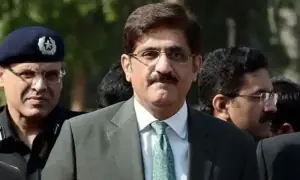









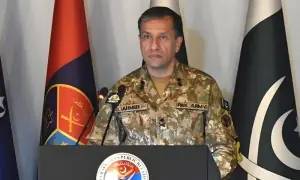


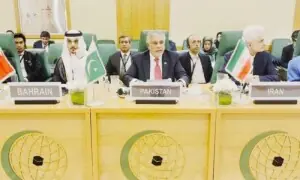
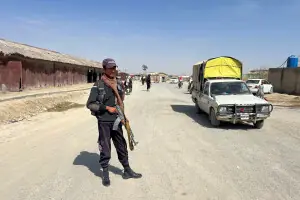
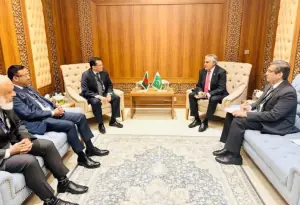

Comments are closed on this story.